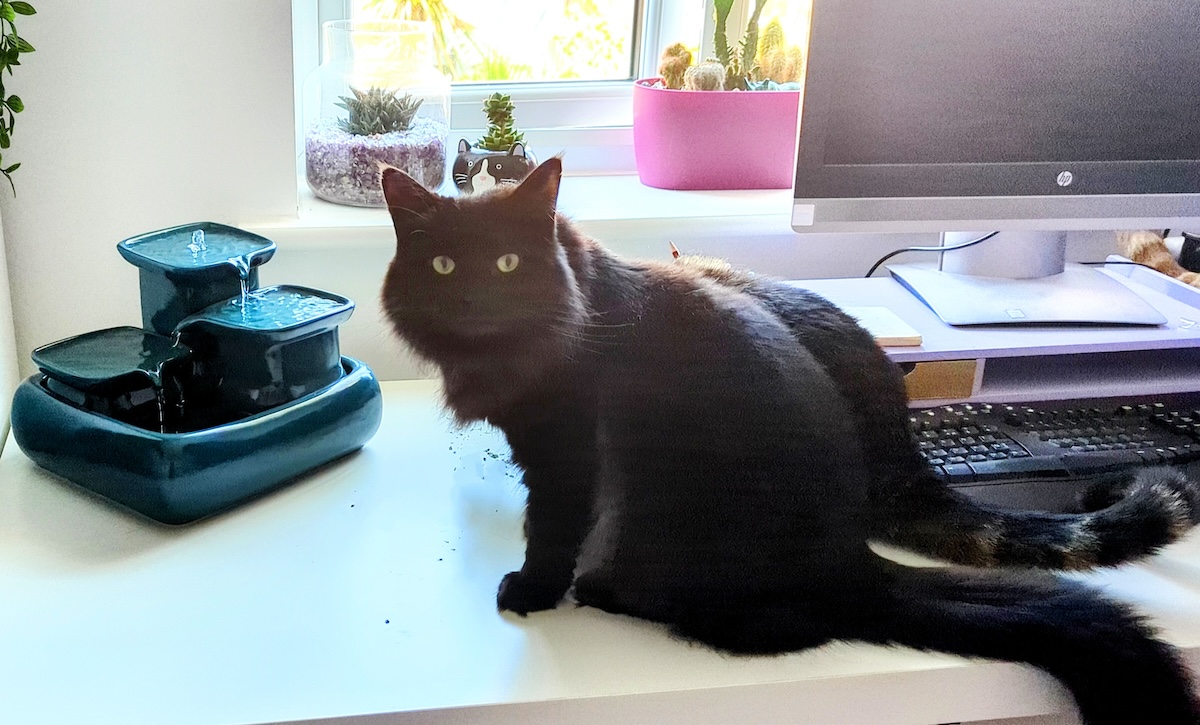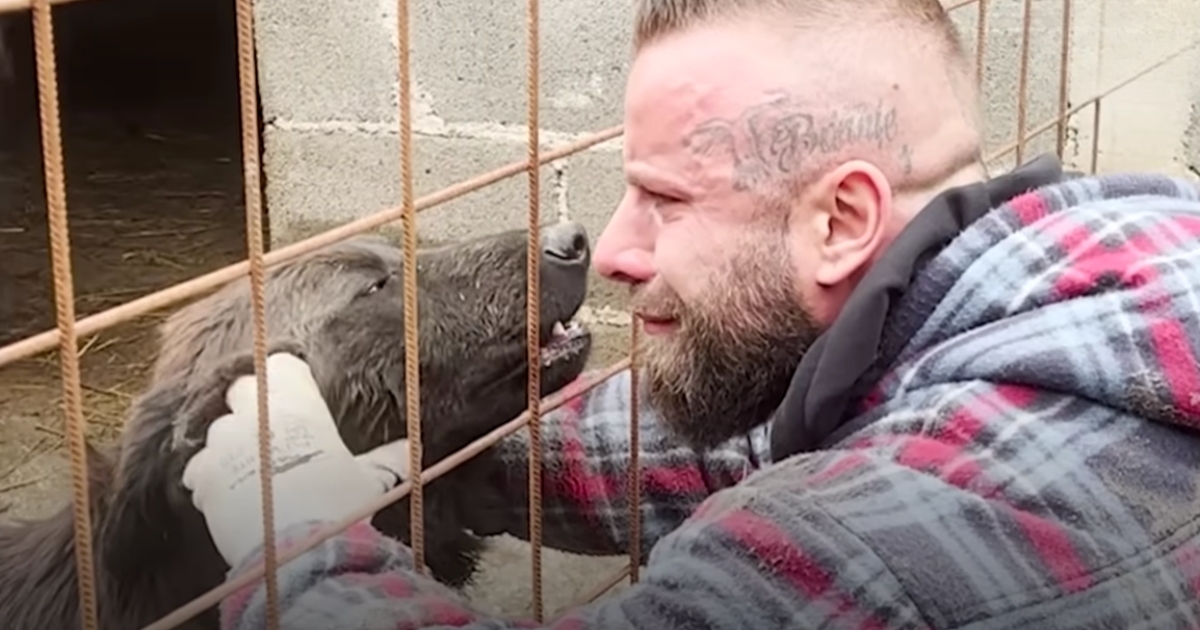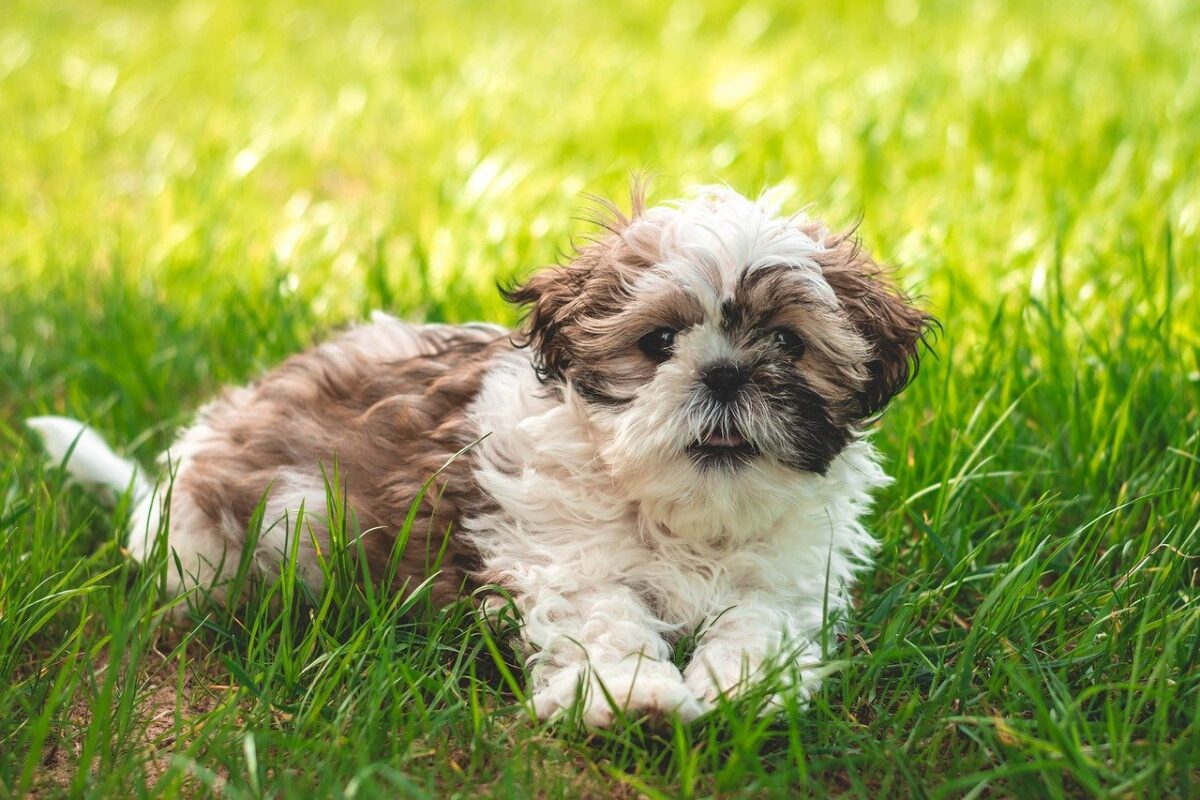
The information is current and up-to-date in accordance with the latest veterinarian research.
Learn more »
Hi, I’m Dr. Karyn! Read my introduction to learn more about me and my five funny dogs, Poppy, Bailey, Kodah, Ned, and Fred.
Every summer, thousands of dogs are seen at veterinary practices suffering from heat stroke, and strangely, I see more cases in the UK than I ever did in Australia. Why? It’s about humidity.
We tend to be much more aware of the dangers of hot weather when the mercury soars, but when temperatures are relatively mild and it’s the humidity that’s sky-high, we’re less inclined to take precautions. If it’s 100°F outside, we know it’s too hot to take the dog out for a run; we know how dangerous it is. But would you be worried about letting your dog run and play to their heart’s content if the temperature was 75°C? Most of us wouldn’t think of this as being particularly hot, and I suppose it’s not, but if humidity is high and wind speed is low, your dog could be in danger.
I Hate the Humidity
How I managed to survive in Brisbane for 30 years, where humidity levels are rarely below 60%, is something of a mystery. When I lived in Alice Springs for a time, I was amazed at how a temperature of 45°C (110°F) could feel cooler than 32°C (90°F) in Brisbane. It was all because the summer humidity in the red center of Australia was around 25%, compared with 75% in Brisbane – that’s a hell of a difference! But exactly what difference does it make?
When we get hot, we sweat; some more than others, and I’m definitely one of the ‘some’! When humidity levels are low, the sweat evaporates rapidly, helping to bring the body temperature down – the body’s cooling system operating as it should! When it’s really humid, our perspiration doesn’t evaporate, leaving us sweaty, and uncomfortable.
You’re probably wondering what this has to do with dogs, when they don’t actually sweat. And that is exactly my point.
Fred thinks icy treats taste even better in the sunshine.
Dogs Don’t Sweat, They Pant
The canine cooling system is also based on evaporation, but of saliva from the tongue. There are a few other behavioral and physiological adaptations that help keep their body temperature within normal limits, but evaporative cooling is their primary method. And in humid conditions, it’s a very inefficient one.
The issue with dogs that exercise in warm or hot conditions isn’t so much about getting hot, as it is about cooling down.
Even on a cool day, your dog’s body temperature will creep up towards the upper limits of normal as they exercise, but their cooling system keeps them from overheating. On a hot day, that temperature can quickly climb to a level that the cooling system struggles to cope with. When conditions are humid, their body temperature can stay elevated for a dangerously long period, and struggle to return to normal. And this can be deadly.
I would always choose to put off a walk on a hot or humid day rather than risk exposing my dogs to heat stress. It’s just not worth it.
How Do I Keep My Dogs Safe from Heat Stroke And From Boredom?
You may have seen my previous post about Kodah’s love of the garden hose, and using water can be a great way to keep your dogs occupied during Summer. However, Kodah is so energetic when playing with water that I have to keep his water pistol under wraps until the evening. Early morning exercise can be okay, but it’s much safer to wait until late afternoon, when the temperature is on its way down.
You might think that a dog like Kodah would need loads of physical exercise every day, but what’s really important for him is keeping his mind active. So when the temperature or humidity are too high to allow him to be physically active, I find ways to keep his brain busy and his body cool.
Paddling Pool
Fred dips a toe before eventually taking the plunge.
I have learned over the years that, without investing in a seriously sturdy pool, I’m better off buying a few cheap ones. That way, it’s not the end of the world when he inevitably breaks them.
Ice Treats
These are great for all the dogs, and you can make different sizes with different flavors. I usually just use some of their regular kibble in a silicone cake or cupcake tray, but any container will do. Add boiling water, and allow to sit for 20 minutes before popping them in the freezer. The flavor disperses into the boiling water, so the ice is tasty, and the challenge of reaching the food inside keeps the dogs busy for hours.
Frozen treats and an icy water bowl
Ice Water
This one’s not an activity, but it’s a great way to keep their water cold all day. Instead of putting ice cubes in the water that melt too quickly, and could potentially be a choking hazard, I half-fill the water bowl and freeze it overnight. I then top up the bowl with regular water, so they have icy cold water all day.
Frozen Toys
During summer, I will pop a few of the dogs’ favorite toys in a plastic bag, and keep them in the freezer overnight. Each morning, they have a selection of chilly chew toys to keep them busy.
Ned & Fred enjoying an ice cold treat.
Stay Home, Stay Alive
Although it feels a bit mean sometimes to leave the dogs behind when we go out for a summer’s day, I would much prefer to find fun ways to keep them cool at home than to risk the deadly effects of heat stroke.
This article is a part of Dr. Karyn’s series with her five dogs.






